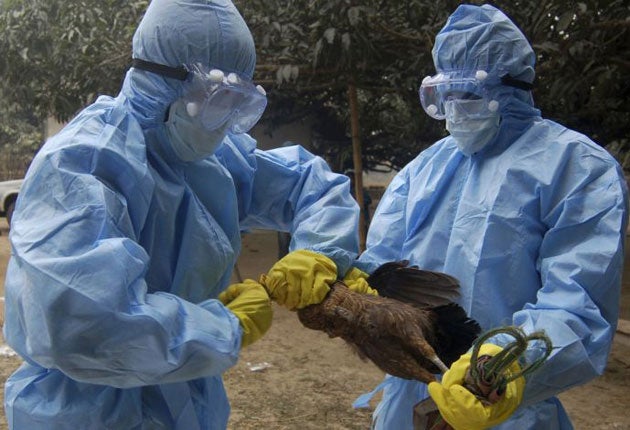H5N1 virus research: It’s a small risk, with a lethal implication
The strain of flu is difficult to transmit from person to person through air droplets

Accidents do happen. This is the warning given in a letter to the European Commission from more than 50 eminent scientists who take issue with some of the researchers conducting research on the H5N1 bird-flu virus.
So far, this virus has only infected a few people because, unlike the ordinary seasonal flu, the H5N1 strain is difficult to transmit from person to person through air droplets. However, more than half of those infected with H5N1 have died – making it potentially more lethal than the 1918 pandemic flu that killed tens of millions.
We are protected against H5N1’s high lethality by its low infectiousness. Knowing what it takes to make H5N1 more transmissible, particularly the mutations that enable it to go “airborne” between people, is the subject of experiments now underway in the US and the Netherlands.
These studies are carried out on laboratory ferrets, the best animal model of human influenza. Not surprisingly, the research is highly controversial. Perhaps the biggest fear is an accidental release from a laboratory doing this work, even with all the bio-containment safeguards.
Accidental releases of dangerous pathogens from laboratories have happened before. A 1977 outbreak of H1N1 after a 20-year hiatus was believed to have been the result of an accident at a laboratory in the former Soviet Union.
The risk of an accident is real, albeit small, but the consequences – a lethal flu pandemic – would be enormous.
Steve Connor is the Independent's Science Editor

Join our commenting forum
Join thought-provoking conversations, follow other Independent readers and see their replies